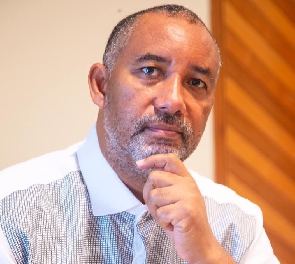The issue is not Coronavirus so much, but how long it will last as a pandemic - that’s the salient economic point.
So, the questions most economists are grappling with are:
- How long will this disruption last?
- Will there be a short period where GDP falls but then recovers; or
- will events continue long enough to significantly impact future GDP?
It is estimated that there would be a general 1.5-2% hit to Global 2020 GDP
- Schools could be closed for more than 2 months
My conclusion is that the economic hit for Global GDP will be bad in the short-term.
Ordinarily, there is no reason why the economy will not bounce back to full strength once the pandemic is over and the world will not go into a recession.
However, this is only true of economies that are fundamentally strong with stock markets that accurately reflect the underlying economy.
The question is : “Is ours strong enough to weather the storm?”
In Ghana, the government is going to take a huge hit as tax revenues drop and oil revenues also drop drastically. If oil does not average in excess of $40 for the year, then we can only expect revenue of $600m as opposed to the $1.15bn projected; and that is only IF we can keep production at 180kbbl per day!
Businesses are going to take large hits as both productivity and demand slow down and many businesses will require economic resuscitation packages to keep afloat so as not to lay off workers.
SMEs especially traders will be hit the hardest as they won’t be ordering many goods (especially from China) with backlog and delays from congested ports.
Our exports may also experience deflated commodity prices as the countries that import our goods (many of which are not essential) would also be experiencing economic slow down; with many families not having enough disposable income and people generally holding on to and saving their salaries.
The Minister of Finance needs to address the nation and present to Parliament, the impact of this virus on the economy - on government revenue and on businesses - not only the big businesses that they seem so protective of, but SMEs and traders who form about 60% of the informal economy.
Many of these businesses may lose most of their capital and won’t make any profits this year as they repay their loans; some of these businesses will go under and may never survive if we do not see a quick turn of events before the end of May.
Government may have to cut interest rates, provide stimulus packages to assist SMEs and remove unnecessary taxes on petroleum products such as stabilization levy to keep businesses afloat
And, by the way, for those interested, Tullow’s stock price hit 13 US cents yesterday, $0.13! Tullow has lost 88% of its share price since the end of December 2019 - and the market is reflecting the uncertainty of Tullow’s future.
So, why is the Government not calling an emergency meeting with all the Jubilee and TEN Partners to understand from Tullow how it’s going to raise the capital needed for all the work required to be done in 2020 to keep production at 140bb/day and even possibly agree an interim new Operator, or at least agree on a joint-partner Operator???
Food for thought
Signed
Alex Mould
18/03/2020
Opinions of Thursday, 19 March 2020
Columnist: Alex Mould



















